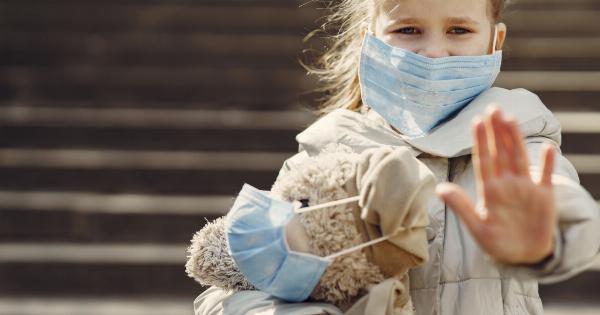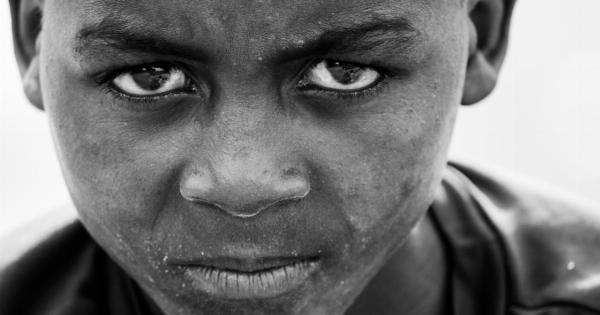Allergies are becoming increasingly common around the world, with millions of children affected by various forms of allergic reactions. Allergies can vary in severity and symptoms, but they all pose a risk to a child’s health and well-being.
In this article, we will explore how allergies impact children’s health and what parents can do to help manage their child’s allergies.
What Are Allergies?
Allergies occur when the immune system overreacts to a foreign substance, such as pollen, dust mites, pet dander, or certain foods.
When a child’s body is exposed to an allergen, the immune system produces antibodies that identify the allergen as harmful and trigger a response. This response can cause a range of symptoms, including sneezing, coughing, itching, runny nose, watery eyes, swelling, and skin rash.
Types of Allergies
Some of the most common types of allergies in children include:.
- Mold Allergy: Mold spores can cause respiratory problems, such as coughing and wheezing.
- Pollen Allergy: Pollen from trees, grasses, and weeds can cause seasonal allergies characterized by sneezing, runny nose, and itchy eyes.
- Dust Mite Allergy: Dust mites are tiny insects that live in dust and can cause allergic reactions, such as asthma and skin rash.
- Food Allergy: Eating certain foods can trigger an allergic reaction in some children, causing symptoms such as hives, swelling, and difficulty breathing.
- Animal Allergy: Exposure to pets, such as dogs and cats, can cause allergic reactions, such as itching, redness, and skin rash.
How Allergies Impact Children’s Health
Allergies can have a profound impact on a child’s health and well-being. Some of the most common ways that allergies impact children’s health include:.
1. Allergies Can Affect Breathing
Allergic reactions can cause breathing difficulties, especially in children who have asthma. The airways may become inflamed and narrowed, making it harder to breathe. This can result in wheezing, coughing, shortness of breath, and even an asthma attack.
In severe cases, allergies can lead to anaphylaxis, a life-threatening reaction that can cause the airways to close up and result in cardiac arrest.
2. Allergies Can Cause Skin Problems
Allergic reactions can cause skin problems, such as hives, eczema, and rashes. These can be itchy, painful, and cause discomfort for children.
In severe cases, allergic reactions can cause angioedema, which is a swelling of the skin, lips, and tongue that can be life-threatening.
3. Allergies Can Affect Eating Habits
If a child has a food allergy, they may need to avoid certain foods or take special precautions to eat safely. This can be challenging for some children and may result in picky eating or a limited diet.
Children with food allergies may also miss out on social activities, such as birthday parties or school events, due to the risk of exposure to allergens.
4. Allergies Can Affect Sleep
Allergies, especially nasal allergies, can make it difficult for children to sleep. They may have trouble breathing through their nose, snore, or wake up frequently throughout the night.
This can lead to fatigue, irritability, and difficulty concentrating during the day. Improving allergic symptoms may help improve sleep quality in some children.
5. Allergies Can Affect Mental Health
Living with allergies can be stressful for children and may cause anxiety or depression. Children may feel isolated or different from their peers if they have to avoid certain foods or activities.
They may also feel a sense of fear or uncertainty about their health if they have had severe allergic reactions in the past. It is important to support children with allergies and help them cope with any emotional challenges they may face.
Managing Allergies in Children
While allergies can pose a risk to children’s health, there are steps parents can take to help manage their child’s symptoms and reduce the risk of allergic reactions. Some strategies for managing allergies in children include:.
1. Identifying Allergens
The first step in managing allergies is to identify the specific allergen that is causing the reaction. This may involve allergy testing, such as skin prick tests or blood tests.
Once the allergen is identified, parents can take steps to avoid exposure to the allergen as much as possible.
2. Avoiding Allergens
One of the most effective ways to manage allergies is to avoid exposure to the allergen. For example, if a child has a peanut allergy, they should avoid peanuts and foods that may contain peanuts.
If a child has a dust mite allergy, parents may need to take steps to reduce dust exposure in the home, such as using allergen-proof bedding and vacuuming regularly.
3. Medications
Medications can be used to help manage allergic symptoms, such as antihistamines, decongestants, and nasal sprays.
These medications work by reducing inflammation and blocking the effects of histamines, which are chemicals released by the immune system in response to allergens. Some children may require prescription medication, such as an inhaler for asthma or an epinephrine auto-injector for severe allergic reactions.
4. Immunotherapy
Immunotherapy, also known as allergy shots, may be recommended for children with severe allergies. This treatment involves gradually increasing exposure to small amounts of the allergen over time.
This can help desensitize the immune system and reduce the severity of allergic reactions.
Conclusion
Allergies can have a significant impact on children’s health and well-being, but with proper management, children can lead healthy, fulfilling lives.
Parents can help manage their child’s allergies by identifying allergens, avoiding exposure to allergens, using medications as directed, and considering immunotherapy for severe allergies. It is important to work with a healthcare provider to develop an individualized plan for managing allergies in children.




























